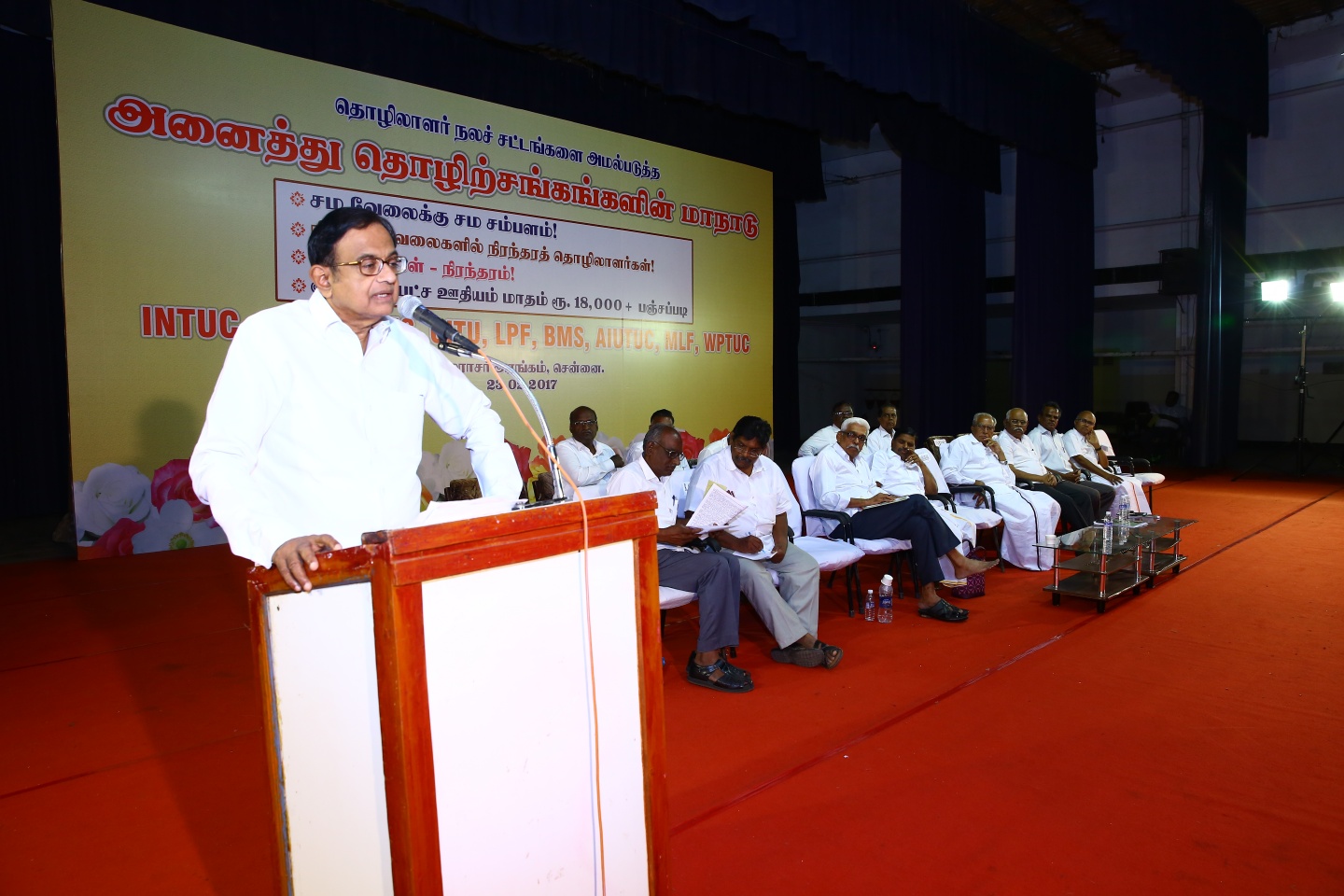Read this article in:
English
1 March, 2017IndustriALL Global Union affiliate Working People Trade Union Congress (WPTUC) along with central trade unions in India organized a mass meeting in Chennai on 23 February to protest against precarious work and demand equal pay for equal work.
The mass meeting was called to protest and launch a joint campaign against precarious work in the state of Tamil Nadu. About 2,500 delegates, including a large number of workers and union representatives from across Tamil Nadu, participated in the event.
Participants included G Sanjeeva Reddy, IndustriALL executive committee member and president of the Indian National Trade Union Congress, and representatives from central trade unions including:
- Hind Mazdoor Sabha
- All India Trade Union Congress
- Centre of Indian Trade Unions
- Labour Progressive Federation
- Bharatiya Mazdoor Sangh
- All India United Trade Union Centre, and
- Marumalarchi Labour Front
Dignitaries including former finance minister P. Chidambaram and retired judge T Hariparanthaman addressed the gathering.
The conference passed a resolution condemning the reduction of the permanent workforce and the deployment of precarious workers in production activities under various names such as casual labour, temporary worker, daily wage worker, trainee, apprentice, non-muster roll workers, ad-hoc worker, contractual employee, sumangali scheme contract and outsourcing.
These precarious workers usually work on par with permanent workers and are at times subjected to increased workload and longer working hours. They are paid poor wages and denied medical, pension and social security benefits.
Speakers at the conference expressed concern that, even though the law provides for the regularization of workers after 480 days of service and restrictions on the recruitment of temporary workers to 10% of the total workforce, the labour department has lost its capacity to implement the rule of law. The public sector, supposedly a model employer, itself refuses to pay equal wages for equal work, while the situation is much worse in the private sector.
Speakers highlighted the Supreme Court of India’s recent judgment in the civil appeal no. 213 of 2013 State of Punjab & others Vs Jagjit Singh & others, which upheld the principle of equal pay for equal work and observed that:
“an employee engaged for the same work, cannot be paid less than another, who performs the same duties and responsibilities. Certainly not, in a welfare state. Such an action besides being demeaning, strikes at the very foundation of human dignity…… the principle of ‘equal pay for equal work’ constitutes a clear and unambiguous right and is vested in every employee – whether engaged on regular or temporary basis.”
The conference called on the state and central governments to immediately implement constitutional provisions, labour laws and pronouncements of the Supreme Court. It appealed to workers and trade unions to build unity cutting across party lines and launch a relentless struggle and take active part in campaigns to achieve demands such as:
- Increase the minimum wage to Rs 18,000,
- Equal pay for equal work,
- Ensure that not more than 10% of employees are temporary workers, and
- Implement the standing order that regulates the employment of trainees.







